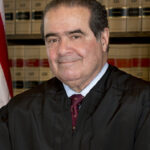Justice O'CONNOR delivered the opinion of the Court.
In this action, we must decide whether a mother, the custodian of a child pursuant to a court order, may invoke the Fifth Amendment privilege against self-incrimination to resist an order of the Juvenile Court to produce the child. We hold that she may not.
I
Petitioner Maurice M. is an abused child. When he was three months old, he was hospitalized with a fractured left femur, and examination revealed several partially healed bone fractures and other indications of severe physical abuse. In the hospital, respondent Bouknight, Maurice's mother, was observed shaking Maurice, dropping him in his crib despite his spica cast, and otherwise handling him in a manner inconsistent with his recovery and continued health. Hospital personnel notified Baltimore City Department of Social Services (BCDSS), petitioner in No. 88-1182, of suspected child abuse. In February, 1987, BCDSS secured a court order removing Maurice from Bouknight's control and placing him in shelter care. Several months later, the shelter care order was inexplicably modified to return Maurice to Bouknight's custody temporarily. Following a hearing held shortly thereafter, the Juvenile Court declared Maurice to be a "child in need of assistance," thus asserting jurisdiction over Maurice and placing him under BCDSS's continuing oversight. BCDSS agreed that Bouknight could continue as custodian of the child, but only pursuant to extensive conditions set forth in a court-approved protective supervision order. The order required Bouknight to "cooperate with BCDSS," "continue in therapy," participate in parental aid and training programs, and "refrain from physically punishing [Maurice]." App. to Pet. for Cert. 86a. The order's terms were "all subject to the further Order of the Court." Id. at 87a. Bouknight's attorney signed the order, and Bouknight in a separate form set forth her agreement to each term.
Eight months later, fearing for Maurice's safety, BCDSS returned to Juvenile Court. BCDSS caseworkers related that Bouknight would not cooperate with them and had in nearly every respect violated the terms of the protective order. BCDSS stated that Maurice's father had recently died in a shooting incident and that Bouknight, in light of the results of a psychological examination and her history of drug use, could not provide adequate care for the child. App. 33-34. On April 20, 1988, the Court granted BCDSS's petition to remove Maurice from Bouknight's control for placement in foster care. BCDSS officials also petitioned for judicial relief from Bouknight's failure to produce Maurice or reveal where he could be found. Id. at 36-39. The petition recounted that, on two recent visits by BCDSS officials to Bouknight's home, she had refused to reveal the location of the child or had indicated that the child was with an aunt whom she would not identify. The petition further asserted that inquiries of Bouknight's known relatives had revealed that none of them had recently seen Maurice and that BCDSS had prompted the police to issue a missing persons report and referred the case for investigation by the police homicide division. Also on April 20, the Juvenile Court, upon a hearing on the petition, cited Bouknight for violating the protective custody order and for failing to appear at the hearing. Bouknight had indicated to her attorney that she would appear with the child, but also expressed fear that, if she appeared, the State would "snatch the child." Id. at 42, 54. The court issued an order to show cause why Bouknight should not be held in civil contempt for failure to produce the child. Expressing concern that Maurice was endangered or perhaps dead, the court issued a bench warrant for Bouknight's appearance. Id. at 51-57.
Maurice was not produced at subsequent hearings. At a hearing one week later, Bouknight claimed that Maurice was with a relative in Dallas. Investigation revealed that the relative had not seen Maurice. The next day, following another hearing at which Bouknight again declined to produce Maurice, the Juvenile Court found Bouknight in contempt for failure to produce the child as ordered. There was and has been no indication that she was unable to comply with the order. The court directed that Bouknight be imprisoned until she "purge[d] herself of contempt by either producing [Maurice] before the court or revealing to the court his exact whereabouts." App. to Pet. for Cert. 82a.
The Juvenile Court rejected Bouknight's subsequent claim that the contempt order violated the Fifth Amendment's guarantee against self-incrimination. The court stated that the production of Maurice would purge the contempt and that
[t]he contempt is issued not because she refuse[d] to testify in any proceeding… [but] because she has failed to abide by the Order of this Court, mainly [for] the production of Maurice M.
App. 150. While that decision was being appealed, Bouknight was convicted of theft and sentenced to 18 months' imprisonment in separate proceedings. The Court of Appeals of Maryland vacated the Juvenile Court's judgment upholding the contempt order. In re Maurice M., 314 Md. 391, 550 A.2d 1135 (1988). The Court of Appeals found that the contempt order unconstitutionally compelled Bouknight to admit through the act of production "a measure of continuing control and dominion over Maurice's person" in circumstances in which "Bouknight has a reasonable apprehension that she will be prosecuted." Id. at 403-404, 550 A.2d at 1141. Chief Justice REHNQUIST granted BCDSS's application for a stay of the judgment and mandate of the Maryland Court of Appeals, pending disposition of the petition for a writ of certiorari. 488 U.S. 11301 (1988) (in chambers). We granted certiorari, 490 U.S. 1003 (1989), and we now reverse.
II
The Fifth Amendment provides that "No person… shall be compelled in any criminal case to be a witness against himself." U.S. Const., Amdt. 5. The Fifth Amendment's protection "applies only when the accused is compelled to make a testimonial communication that is incriminating." Fisher v. United States, 425 U. S. 391, 425 U. S. 408 (1976); see Doe v. United States, 487 U. S. 201, 487 U. S. 207, 487 U. S. 209 -210, n. 8 (1988) ( Doe II ); Schmerber v. California, 384 U. S. 757, 384 U. S. 761 (1966) ("[T]he privilege protects an accused only from being compelled to testify against himself, or otherwise provide the State with evidence of a testimonial or communicative nature"). The courts below concluded that Bouknight could comply with the order through the unadorned act of producing the child, and we thus address that aspect of the order. When the government demands that an item be produced, "the only thing compelled is the act of producing the [item]." Fisher, supra, 425 U.S. at 425 U. S. 410, n. 11; see United States v. Doe, 465 U. S. 605, 465 U. S. 612 (1984) ( Doe I ). The Fifth Amendment's protection may nonetheless be implicated because the act of complying with the government's demand testifies to the existence, possession, or authenticity of the things produced. See Doe II, supra, 487 U.S. at 487 U. S. 209 ; Doe I, supra, 465 U.S. at 465 U. S. 612 -614, and n. 13; Fisher, supra, 425 U.S. at 425 U. S. 410 -413. But a person may not claim the Amendment's protections based upon the incrimination that may result from the contents or nature of the thing demanded. Doe I, 465 U.S. at 465 U. S. 612, and n. 10; id. at 465 U. S. 618 (O'CONNOR, J., concurring); Fisher, supra, 425 U.S. at 425 U. S. 408 -410. Bouknight therefore cannot claim the privilege based upon anything that examination of Maurice might reveal, nor can she assert the privilege upon the theory that compliance would assert that the child produced is in fact Maurice (a fact the State could readily establish, rendering any testimony regarding existence or authenticity insufficiently incriminating, see Fisher, supra, at 425 U. S. 411 ). Rather, Bouknight claims the benefit of the privilege because the act of production would amount to testimony regarding her control over and possession of Maurice. Although the State could readily introduce evidence of Bouknight's continuing control over the child – e.g., the custody order, testimony of relatives, and Bouknight's own statements to Maryland officials before invoking the privilege -her implicit communication of control over Maurice at the moment of production might aid the State in prosecuting Bouknight.
The possibility that a production order will compel testimonial assertions that may prove incriminating does not, in all contexts, justify invoking the privilege to resist production. See infra, at 493 U. S. 556 -558. Even assuming that this limited testimonial assertion is sufficiently incriminating and "sufficiently testimonial for purposes of the privilege," Fisher, supra, at 425 U. S. 411, Bouknight may not invoke the privilege to resist the production order because she has assumed custodial duties related to production and because production is required as part of a noncriminal regulatory regime.
The Court has on several occasions recognized that the Fifth Amendment privilege may not be invoked to resist compliance with a regulatory regime constructed to effect the State's public purposes unrelated to the enforcement of its criminal laws. In Shapiro v. United States, 335 U. S. 1 (1948), the Court considered an application of the Emergency Price Control Act and a regulation issued thereunder which required licensed businesses to maintain records and make them available for inspection by administrators. The Court indicated that no Fifth Amendment protection attached to production of the "required records," which the " defendant was required to keep, not for his private uses, but for the benefit of the public, and for public inspection.'" Id. at 335 U. S. 17 -18 (quoting Wilson v. United States, 221 U. S. 361, 221 U. S. 381 (1911)). The Court's discussion of the constitutional implications of the scheme focused upon the relation between the Government's regulatory objectives and the Government's interest in gaining access to the records in Shapiro's possession:
It may be assumed at the outset that there are limits which the Government cannot constitutionally exceed in requiring the keeping of records which may be inspected by an administrative agency and may be used in prosecuting statutory violations committed by the recordkeeper himself. But no serious misgiving that those bounds have been overstepped would appear to be evoked when there is a sufficient relation between the activity sought to be regulated and the public concern so that the Government can constitutionally regulate or forbid the basic activity concerned, and can constitutionally require the keeping of particular records, subject to inspection by the Administrator.
335 U.S. at 335 U. S. 32. See also In re Harris, 221 U. S. 274, 221 U. S. 279 (1911) (Holmes, J.) (regarding a court order that a bankrupt produce account books, "[t]he question is not of testimony but of surrender -not of compelling the bankrupt to be a witness against himself in a criminal case, past or future, but of compelling him to yield possession of property that he no longer is entitled to keep"). The Court has since refined those limits to the government's authority to gain access to items or information vested with this public character. The Court has noted that "the requirements at issue in Shapiro were imposed in an essentially non-criminal and regulatory area of inquiry,'" and that Shapiro's reach is limited where requirements "are directed to a `selective group inherently suspect of criminal activities.'" Marchetti v. United States, 390 U. S. 39, 390 U. S. 57 (1968) (quoting Albertson v. Subversive Activities Control Board, 382 U. S. 70, 382 U. S. 79 (1965)); see Grosso v. United States, 390 U. S. 62, 390 U. S. 68 (1968) ( Shapiro inapplicable because "[h]ere, as in Marchetti, the statutory obligations are directed almost exclusively to individuals inherently suspect of criminal activities"); Haynes v. United States, 390 U. S. 85, 390 U. S. 98 -99 (1968).
California v. Byers, 402 U. S. 424 (1971), confirms that the ability to invoke the privilege may be greatly diminished when invocation would interfere with the effective operation of a generally applicable, civil regulatory requirement. In Byers, the Court upheld enforcement of California's statutory requirement that drivers of cars involved in accidents stop and provide their names and addresses. A plurality found the risk of incrimination too insubstantial to implicate the Fifth Amendment, id. at 402 U. S. 427 -428, and noted that the statute "was not intended to facilitate criminal convictions but to promote the satisfaction of civil liabilities," id. at 402 U. S. 430, was " directed at the public at large,'" ibid. (quoting Albertson v. Subversive Activities Control Board, supra, 382 U.S. at 382 U. S. 79 ), and required disclosure of no inherently illegal activity. See also United States v. Sullivan, 274 U. S. 259 (1927) (rejecting Fifth Amendment objection to requirement to file income tax return). Justice Harlan, the author of Marchetti, Grosso, and Haynes, concurred in the judgment. He those three cases as considering statutory schemes that "focused almost exclusively on conduct which was criminal," 402 U.S. at 402 U. S. 454. While acknowledging that in particular cases the California statute would compel incriminating testimony, he concluded that the noncriminal purpose and the general applicability of the reporting requirement demanded compliance even in such cases. Id. at 402 U. S. 458.
When a person assumes control over items that are the legitimate object of the government's noncriminal regulatory powers, the ability to invoke the privilege is reduced. In Wilson v. United States, supra, the Court surveyed a range of cases involving the custody of public documents and records required by law to be kept because they related to "the appropriate subjects of governmental regulation and the enforcement of restrictions validly established." Id., 221 U.S. at 221 U. S. 380. The principle the Court drew from these cases is:
[W]here, by virtue of their character and the rules of law applicable to them, the books and papers are held subject to examination by the demanding authority, the custodian has no privilege to refuse production although their contents tend to criminate him. In assuming their custody, he has accepted the incident obligation to permit inspection.
Id. at 221 U. S. 382. See also Braswell v. United States, 487 U. S. 99, 487 U. S. 109 -113 (1988); Curcio v. United States, 354 U. S. 118, 354 U. S. 123 -124 (1957) ("A custodian, by assuming the duties of his office, undertakes the obligation to produce the books of which he is custodian in response to a rightful exercise of the State's visitorial powers"). In Shapiro, the Court interpreted this principle as extending well beyond the corporate context, 335 U.S. at 335 U. S. 16 -20, and emphasized that Shapiro had assumed and retained control over documents in which the government had a direct and particular regulatory interest. Id. at 335 U. S. 7 -8, 335 U. S. 14 -15. Indeed, it was in part Shapiro's custody over items having this public nature that allowed the Court in Marchetti, supra, 390 U.S. at 390 U. S. 57, Grosso, supra, 390 U.S. at 390 U. S. 69, and Haynes, supra, 390 U.S. at 390 U. S. 99, to distinguish the measures considered in those cases from the regulatory requirement at issue in Shapiro.
These principles readily apply to this case. Once Maurice was adjudicated a child in need of assistance, his care and safety became the particular object of the State's regulatory interests. See 314 Md. at 404, 550 A.2d at 1141; Md.Cts. & Jud. Proc.Code Ann. §§ 3-801(e), 3-804(a) (Supp. 1989); see also App. 105 ("This court has jurisdiction to require at all times to know the whereabouts of the minor child. We asserted jurisdiction over that child in the spring of 1987… "). Maryland first placed Maurice in shelter care, authorized placement in foster care, and then entrusted responsibility for Maurice's care to Bouknight. By accepting care of Maurice subject to the custodial order's conditions (including requirements that she cooperate with BCDSS, follow a prescribed training regime, and be subject to further court orders), Bouknight submitted to the routine operation of the regulatory system and agreed to hold Maurice in a manner consonant with the State's regulatory interests and subject to inspection by BCDSS. Cf. Shapiro v. United States, 335 U. S. 1 (1948). In assuming the obligations attending custody Bouknight "has accepted the incident obligation to permit inspection." Wilson, 221 U.S. at 221 U. S. 382. The State imposes and enforces that obligation as part of a broadly directed, noncriminal regulatory regime governing children cared for pursuant to custodial orders. See Md. Cts. of Jud.Proc.Code Ann. § 3-802(a) (1984) (setting forth child protective purposes of subtitle, including "provid[ing] for the care, protection, and wholesome mental and physical development of children coming within the provisions of this subtitle"); see also Md.Cts. & Jud.Proc.Code Ann. § 3-820(b), (c) (Supp.1989); In re Jessica M., 312 Md. 93, 538 A.2d 305 (1988).
Persons who care for children pursuant to a custody order, and who may be subject to a request for access to the child, are hardly a " selective group inherently suspect of criminal activities.'" Marchetti, 390 U.S. at 390 U. S. 57 (quoting Albertson v. Subversive Activities Control Board, 382 U.S. at 382 U. S. 79 ). The Juvenile Court may place a child within its jurisdiction with social service officials or "under supervision in his own home or in the custody or under the guardianship of a relative or other fit person, upon terms the court deems appropriate." Md.Cts. & Jud.Proc.Code Ann. § 3-820(c)(1)(i) (Supp.1989). Children may be placed, for example, in foster care, in homes of relatives, or in the care of state officials. See, e.g., In re Jessica M., supra; In re Arlene G., 301 Md. 355, 483 A.2d 39 (1984); Maryland Dept. of Health and Mental Hygiene v. Prince George's County Dept. of Social Services, 47 Md. App. 436, 423 A.2d 589 (1980). Even when the court allows a parent to retain control of a child within the court's jurisdiction, that parent is not one singled out for criminal conduct, but rather has been deemed to be, without the State's assistance, simply "unable or unwilling to give proper care and attention to the child and his problems." Md.Cts. & Jud.Proc. Code Ann. § 3-801(e) (Supp.1989); see In re Jertrude O., 56 Md. App. 83, 466 A.2d 885 (1983), cert. denied, 298 Md. 309, 469 A.2d 863 (1984). The provision that authorized the Juvenile Court's efforts to gain production of Maurice reflects this broad applicability. See Md.Cts. & Jud.Proc.Code Ann. § 3-814(c) (1984) ("If a parent, guardian, or custodian fails to bring the child before the court when requested, the court may issue a writ of attachment directing that the child be taken into custody and brought before the court. The court may proceed against the parent, guardian, or custodian for contempt"). This provision "fairly may be said to be directed at… parents, guardians, and custodians who accept placement of juveniles in custody." 314 Md. at 418, 550 A.2d at 1148 (McAuliffe, J., dissenting).
Similarly, BCDSS's efforts to gain access to children, as well as judicial efforts to the same effect, do not "focu[s] almost exclusively on conduct which was criminal." Byers, 402 U.S. at 402 U. S. 454 (Harlan, J., concurring in judgment). Many orders will arise in circumstances entirely devoid of criminal conduct. Even when criminal conduct may exist, the court may properly request production and return of the child, and enforce that request through exercise of the contempt power, for reasons related entirely to the child's wellbeing and through measures unrelated to criminal law enforcement or investigation. See Maryland Cts. & Jud.Proc.Code Ann. § 3-814(c) (1984). This case provides an illustration: concern for the child's safety underlay the efforts to gain access to and then compel production of Maurice. See App. 33-39, 53-55, 150, 155-158; see also 314 Md. at 419, 550 A.2d at 1149 (McAuliffe, J., dissenting). Finally, production in the vast majority of cases will embody no incriminating testimony, even if in particular cases the act of production may incriminate the custodian through an assertion of possession, the existence, or the identity of the child. Cf. Byers, 402 U.S. at 402 U. S. 430 -431; id. at 402 U. S. 458 (Harlan, J., concurring in judgment). These orders to produce children cannot be characterized as efforts to gain some testimonial component of the act of production. The government demands production of the very public charge entrusted to a custodian, and makes the demand for compelling reasons unrelated to criminal law enforcement and as part of a broadly applied regulatory regime. In these circumstances, Bouknight cannot invoke the privilege to resist the order to produce Maurice.
We are not called upon to define the precise limitations that may exist upon the State's ability to use the testimonial aspects of Bouknight's act of production in subsequent criminal proceedings. But we note that imposition of such limitations is not foreclosed. The same custodial role that limited the ability to resist the production order may give rise to corresponding limitations upon the direct and indirect use of that testimony. See Braswell, 487 U.S. at 487 U. S. 118, and n. 11. The State's regulatory requirement in the usual case may neither compel incriminating testimony nor aid a criminal prosecution, but the Fifth Amendment protections are not thereby necessarily unavailable to the person who complies with the regulatory requirement after invoking the privilege and subsequently faces prosecution. See Marchetti, 390 U.S. at 390 U. S. 58 -59 (the "attractive and apparently practical" course of subsequent use restriction not appropriate where a significant element of the regulatory requirement is to aid law enforcement); see also Leary v. United States, 395 U. S. 6, 395 U. S. 26 -27 (1969); Haynes, 390 U.S. at 390 U. S. 100 ; Grosso, 390 U.S. at 390 U. S. 69 ; cf. Doe I, 465 U.S. at 465 U. S. 617, n. 17 (scope of restriction). In a broad range of contexts, the Fifth Amendment limits prosecutors' ability to use testimony that has been compelled. See Simmons v. United States, 390 U. S. 377, 390 U. S. 391 -394 (1968) (no subsequent admission of testimony provided in suppression hearing); Murphy v. Waterfront Comm'n of New York Harbor, 378 U. S. 52, 378 U. S. 75 -76 (1964) (Fifth Amendment bars use, in criminal processes, in other jurisdictions of testimony compelled pursuant to a grant of use immunity in one jurisdiction); Maness v. Meyers, 419 U. S. 449, 419 U. S. 474 -475 (1975) (WHITE, J., concurring in result); Adams v. Maryland, 347 U. S. 179, 347 U. S. 181 (1954) ("[A] witness does not need any statute to protect him from the use of self-incriminating testimony he is compelled to give over his objection. The Fifth Amendment takes care of that without a statute"); see also New Jersey v. Portash, 440 U. S. 450 (1979); Garrity v. New Jersey, 385 U. S. 493, 385 U. S. 500 (1967). But cf. Doe I, supra, 465 U.S. at 465 U. S. 616 -617 (construing federal use immunity statute, 18 U.S.C. §§ 6001-6005); Pillsbury Co. v. Conboy, 459 U. S. 248, 459 U. S. 261 -262 (1983) (declining to supplement previous grant of federal use immunity).
III
The judgment of the Court of Appeals of Maryland is reversed, and the cases remanded to that court for further proceedings not inconsistent with this opinion.
So ordered.






